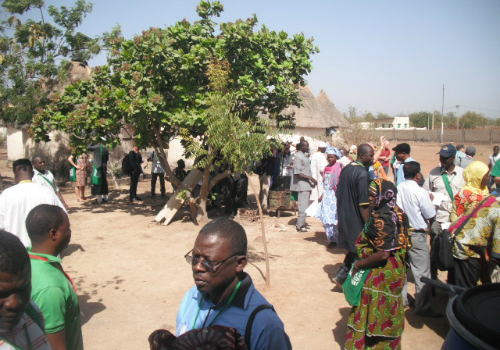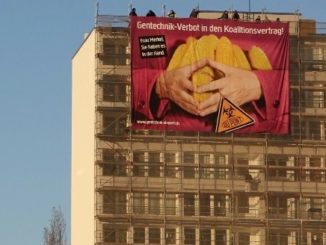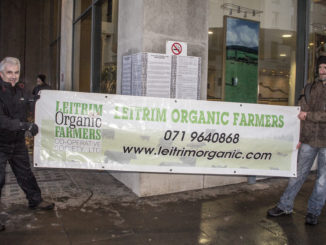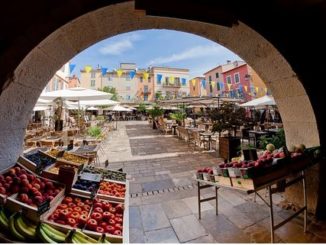Written By: Stella Beghini, Agrobiodiversity Campaign Intern for Eco Ruralis

At the recent International Forum on Agroecology held in Mali, delegates of peasants and many other groups from all over the world strongly addressed the roots of the crisis concerning our natural and social systems. They claimed agroecology as the real solution to reach environmental justice. The challenges and opportunities of how agroecology can be achieved in Eastern Europe is essential to growing this international movement.
The Nyéléni Center in the Malian village of Sélingué held its first Forum in 2007 where food sovereignty was first conceptualized as a holistic approach and vision to agrarian justice. Fast forward to 2015, another meeting of diverse and united groups of peasants, indigenous people, fisherman, agricultural workers and others was held to work on reaffirming agroecology as the solution to mend our broken food and social systems.
The delegates pointed out the many challenges that peasants around the world are facing nowadays: the loss of control over natural resources, land and whole knowledge systems that are the basis of our traditions and ways of living. Food sovereignty and agroecology across the world stand as the real solutions to the multiple environmental and social crises that are ascribed to a system where nature and knowledge are seen as commodities only for the sake of productivity and ‘development’.
The concept of agroecology by itself is also threatened by misleading interpretations. Since the first Nyelei Forum of 2007, agroecology has been partially or poorly conceptualized by multilateral institutions, NGOs and agricultural companies. They integrate some of the tools of agroecology without addressing the real issues: who produces food for the planet and who has control over the system of production? Indeed, the move to agroecology is truly political: “it requires us to challenge and transform structures of power in society. We need to put the control of seeds, biodiversity, land and territories, waters, knowledge, culture and the commons in the hands of the peoples who feed the world,” according to the declaration of the International Forum of Agroecology.
Eastern Europe, now with a better documented history of land grabbing and industrial agriculture, holds a special place in this debate. The recognition of peasants’ right to food, land and water is far from being a fact. As stated in the Declaration of the Forum,“Territories are a fundamental pillar of agroecology. Peoples and communities have the right to maintain their own spiritual and material relationships to their lands […] This implies the full recognition of their laws, traditions, customs, tenure systems, and institutions, and constitutes the recognition of the self-determination and autonomy of peoples”. The political and social control over natural resources is in constant threat also in Europe and the situations in Poland and Romania clearly demonstrate this.
In Poland, farmers have been particularly hit by the Russian embargo on agricultural products from Europe, a market that has always been vital for Polish vegetable and fruit producers. Moreover, farmers have faced strict policies on the processing of food and the selling of home-make products: these niche and informal markets are tremendously important for the livelihood of peasants and small holder farmers and they represent local food chains that must be protected. These issues contributed to the biggest farmer’s protest to ever happen in Poland. Fostering peasant agriculture and not an industry strongly linked with agribusiness corporations will facilitate access to informal markets which could make a real difference in fostering agroecology and food independence.
Closely linked to the Polish case, Romania is also a fertile land for food and land grabbing, as consistently reported by Eco Ruralis. A wide range of actors such as investment funds, insurance companies, multinationals bank are jeopardizing access to land and negatively affecting the health and livelihoods of peasants. The case of the Austrian company of the count Andreas von Bardeau, owning over 21.000 hectares of land in Romania, is just one example of the dismantling of the peasants’ right to a sovereign local rural system.
On the other hand, there is still good news coming from this corner of Europe. As witnessed with Eco Ruralis’ recent traditional seed distribution, the participation of peasants from all around the country has been overwhelming. In just a few days, around 6000 packs of traditional seeds have been sent to over 1200 peasants, gardeners, and urban farmers. Bringing back these seeds to their culture and climate holds great potential to revitalise rural traditions and communities across the country. They are encouraged to save their own seeds and also to share them with others in order to ensure genetic seed diversity.
Now more than ever, agroecology is standing as a just approach that guarantees access to food, land and knowledge. It suggests concrete practices that integrate local food systems, access to land, environmental safety and the building of a global community conscious of the threats to sustainable rural lifestyles.
More from Eco Ruralis
- Keep it local: Romanian pharma sector’s land grab in Bulgaria
- Peasant. Not a bad word – but what does it mean?
- Short Supply Chains in Romanian Rural Development Policy
- Garden to garden: Eco Ruralis’ 2015 traditional seed catalogue
- No more neighbours: Rural Romanian landgrabs.
- Bureaucracy hampering CAP funds absorption in Romania
- Of Fairy Orchards, Biodiversity & Octogenarian Wisdom
- Illegal GM soy discovered in Romania, claim Greenpeace.
- Eastern Europe against TTIP Trojan Horse
- Return of the Roman General: Land Grabbing in Western Romania
- Corporate control of EU cereal seed supply: the facts from Romania
- A new, more flexible alternative food network model
- Romanian peasants’ civil disobedience regains market access
- Climate Smart Agriculture: a climate change fairytale
- Billions Spent on Rural Romania – who benefits?




